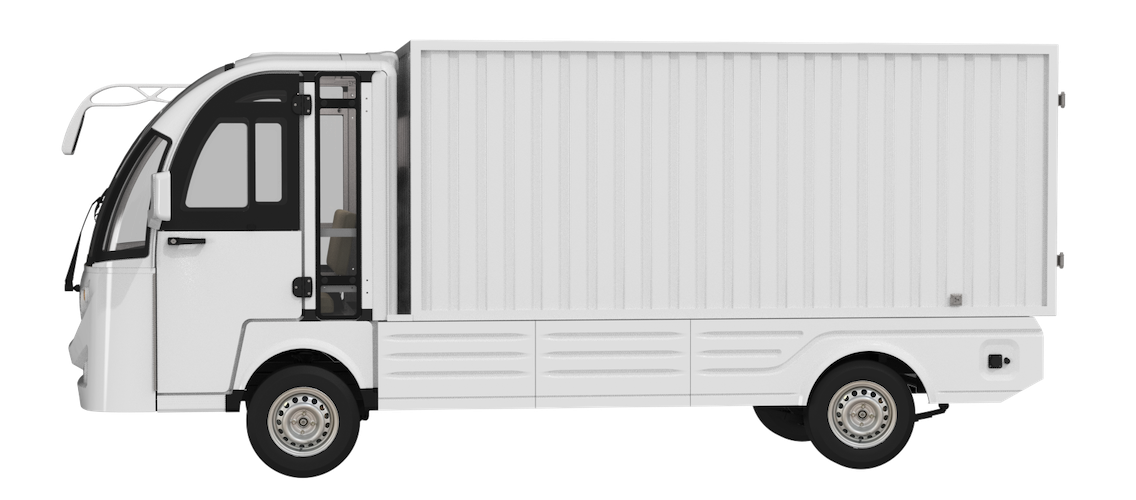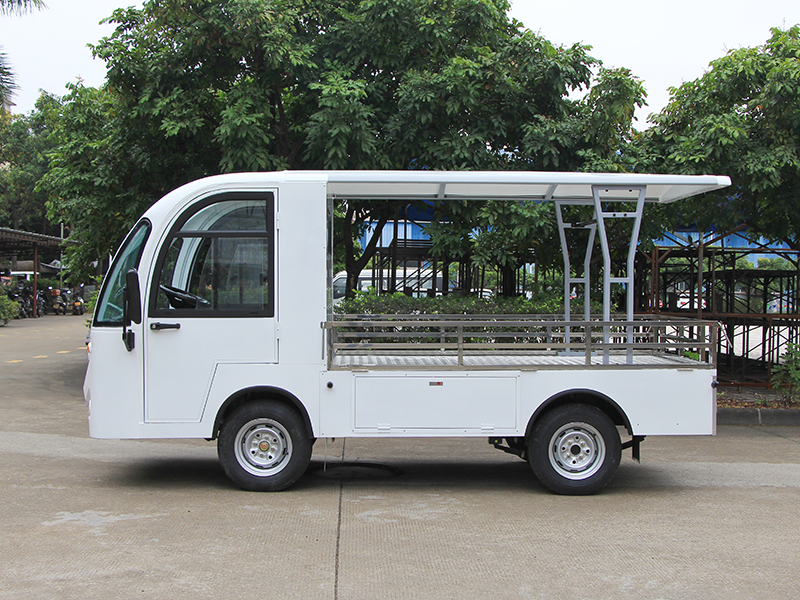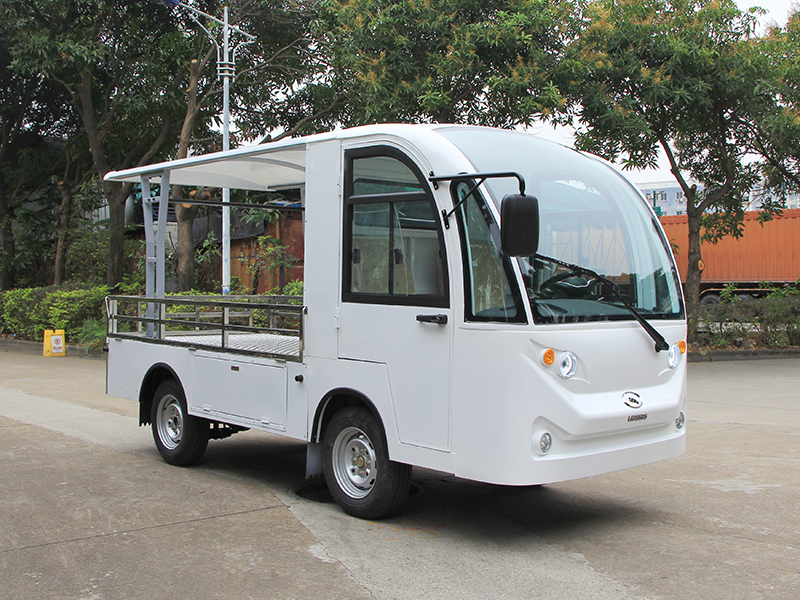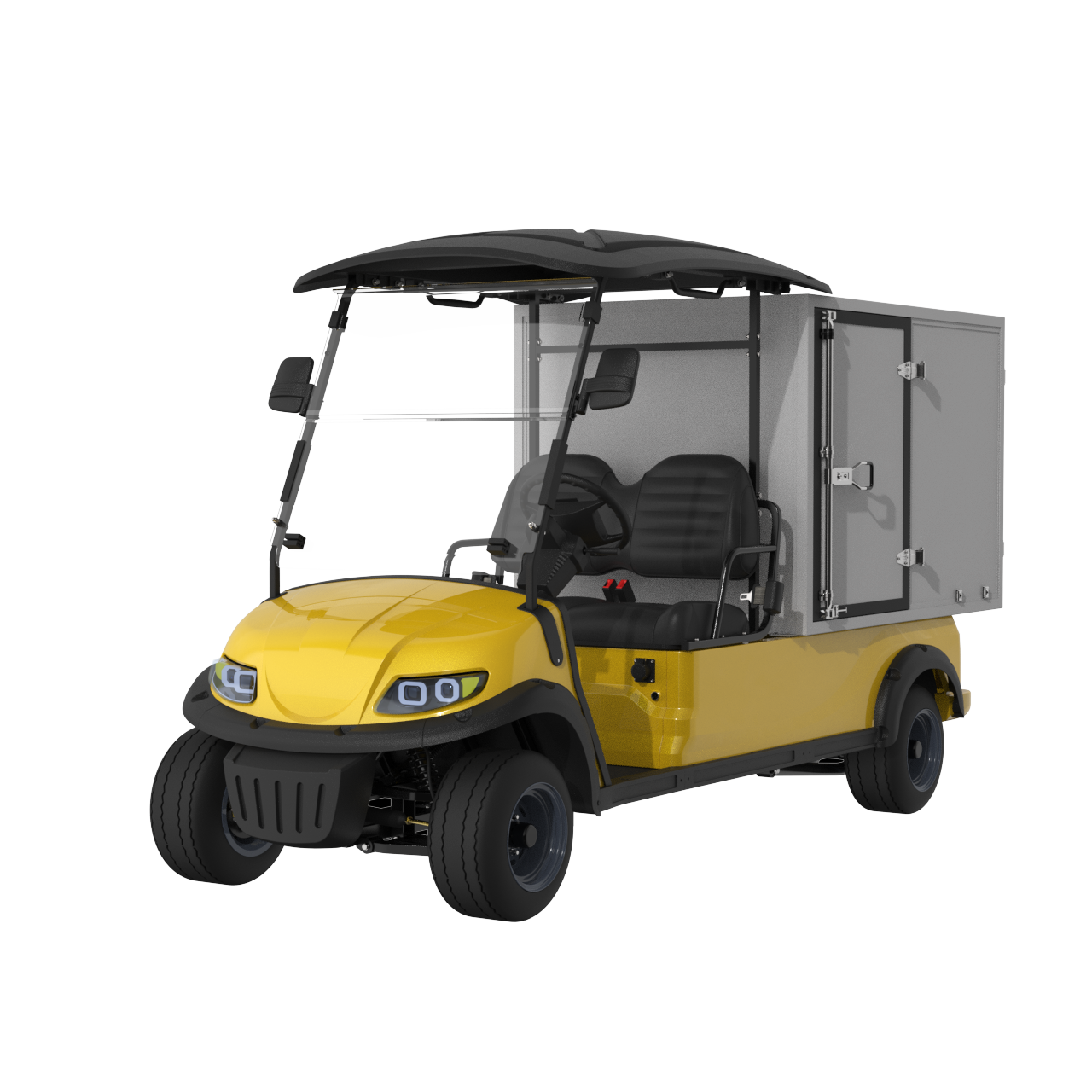Content Menu
● The Growing Importance of Electric Cargo Vehicles in Italy
● Leading Electric Cargo Vehicle Manufacturers and Suppliers in Italy
>> Stellantis Group (Fiat Professional and Peugeot)
>> Alke'
>> Esagono Energia
>> Morello Giovanni
>> Piaggio Group
>> Regis Motors
>> Volta Trucks
>> Officine Recycle
>> Other Noteworthy Italian Innovators
● Innovations Driving the Italian Electric Cargo Vehicle Market
● Practical Applications of Electric Cargo Vehicles in Italy
● Conclusion
● FAQ
>> 1. What makes Italian electric cargo vehicles stand out in the global market?
>> 2. How cost-effective are electric cargo vehicles compared to conventional diesel vehicles?
>> 3. Can Italian manufacturers customize electric cargo vehicles for specialized industries?
>> 4. What range and charging solutions are available in Italian electric cargo vehicles?
>> 5. Are Italian electric cargo vehicles compliant with European regulations and certifications?
Italy, a country famed for automotive excellence and industrial craftsmanship, is swiftly becoming a global hotspot for electric cargo vehicle innovation and production. From historic cities to advanced industrial hubs, Italian companies are at the forefront of supplying electric cargo vehicles that cater to a broad range of commercial, industrial, and urban logistics needs. This article provides an in-depth look at the leading manufacturers and suppliers in Italy's electric cargo vehicle sector, highlighting their products, innovations, and contributions to sustainable transportation.
The Growing Importance of Electric Cargo Vehicles in Italy
The electric cargo vehicle industry in Italy is rising fast, driven by several factors. Increasing environmental regulation from the European Union and local governments encourages companies to shift towards zero-emission vehicles. Urban centers across Italy have introduced Low Emission Zones (LEZs) and other restrictions on fossil-fuel-powered commercial vehicles, making electric alternatives necessary for businesses. Moreover, growing awareness of climate change and environmentally responsible business practices has accelerated adoption.
Electric cargo vehicles (ECVs) offer clear advantages in this environment. Their zero tailpipe emissions improve air quality, while lower operational costs, including cheaper energy and reduced maintenance, make them appealing economically. These vehicles are also designed with urban logistics in mind — quiet operation, compact dimensions, and easy maneuverability are critical for crowded city streets.
Italy's electric cargo vehicle manufacturers and suppliers answer these requirements with a strong lineup of innovative products tailored to a variety of uses, from last-mile urban delivery vans to heavy-duty industrial trucks.

Leading Electric Cargo Vehicle Manufacturers and Suppliers in Italy
Stellantis Group (Fiat Professional and Peugeot)
Stellantis is a powerhouse in the European commercial vehicle market. In Italy, its Fiat Professional brand has been instrumental in advancing electric cargo vehicles. The Fiat E-Ducato Cargo is a flagship model known for its outstanding cargo space — offering volumes up to 20.5 cubic meters — and a driving range of approximately 320 kilometers on a single charge. It supports various configurations, from box vans to refrigerated units, catering to logistics, food delivery, and municipal services.
Alongside Fiat, Peugeot under Stellantis has successfully integrated electric technology into its Peugeot e-Expert range, known for its reliability and versatility. These vehicles benefit from advanced charging capabilities including 22kW AC fast charging, reducing downtime on the road.
Stellantis operates one of the largest van production plants in Europe, which not only produces electric models but also invests heavily in sustainable manufacturing processes, reinforcing its commitment to greener logistics.
Alke'
Alke' is a specialized Italian manufacturer focusing on rugged, versatile electric utility vehicles. Their products are widely used by municipalities, industrial operators, and logistics companies requiring robust vehicles capable of heavy payloads and demanding terrain. Alke' vehicles offer payload capacities up to 1,630kg and towing capacities of up to 4,500kg, making them suitable for waste collection, off-road maintenance, catering, and other specialized applications.
What sets Alke' apart is the high level of customization available. Clients can select from a range of body styles, accessories, and powertrain options tailored specifically to operational needs.
Esagono Energia
Esagono Energia prides itself on completely Italian-designed and manufactured electric vehicles, prominently the Gastone Electric Pick-Up. This compact electric truck targets urban logistics, boasting a 1-ton payload capability and a respectable range of about 180 kilometers, ensuring it handles the stop-and-go nature of city deliveries efficiently.
The Gastone model is homologated under the European N1 category, confirming its suitability for commercial transport. Its aluminum body ensures lightness without sacrificing durability, and configurable load beds increase operational flexibility.
Morello Giovanni
Morello Giovanni specializes in heavy-duty electric platform trucks and trolleys designed for industrial environments. Their vehicles manage payloads from as little as 1 ton up to truly heavy loads approaching 1,000 tons. Utilizing battery-electric or hybrid powertrains, these vehicles serve sectors like steel manufacturing, construction, and on-site logistics where emissions regulations are increasingly strict.
This focus on zero-emission material handling solutions positions Morello Giovanni as a key player in decarbonizing industrial inner logistics.
Piaggio Group
Famous worldwide for their scooters and motorcycles, Piaggio has expanded into the electric commercial vehicle field with the Porter NPE. This full-electric city truck is compact and maneuverable, perfectly suited for tight urban environments where access restrictions and traffic congestion prevail.
With a payload exceeding one tonne, the Porter NPE offers versatility for municipal services, deliveries, and business fleets. Piaggio's strong heritage in reliable light vehicles adds confidence for buyers venturing into electric truck adoption.
Regis Motors
A pioneer of the electric compact transport segment, Regis Motors produces the Epic0, an electric vehicle blending a compact footprint with spacious cargo capacity. It targets city logistics providers prioritizing agility, doubling as an eco-conscious work vehicle suitable for both urban and rural environments, with automotive-grade safety systems.
The Epic0's flexible driving modes and zero-emission design demonstrate Regis Motors' commitment to practical and sustainable transport solutions.
Volta Trucks
Although headquartered outside Italy, Volta Trucks has cultivated a meaningful presence in the Italian electric freight market with its Volta Zero. This large electric truck is designed specifically for urban freight and last-mile delivery, emphasizing safety, efficiency, and environmental responsibility.
Volta's “Truck as a Service” model — combining vehicle use with holistic fleet management — is gaining traction in Italy's modern logistics ecosystem, promoting cost-effective electric freight adoption.

Officine Recycle
Officine Recycle innovates in the light urban logistics space with electric cargo bikes such as the E-Bronte 2.0. As demand for environmentally friendly small-scale delivery solutions grows, their compact electric cargo bikes offer zero-emission capabilities for couriers and businesses in dense city centers.
These solutions are particularly suited for sectors like food delivery, postal services, and retail, where access to restricted zones and last-mile convenience is crucial.
Other Noteworthy Italian Innovators
Several smaller or niche companies contribute to Italy's electric cargo vehicle ecosystem:
- Velettrica develops proprietary electric propulsion technologies aimed at improving energy efficiency and motor performance.
- GoVolt specializes in last-mile B2B electric logistics and fleet services, providing integrated solutions to urban businesses aiming for sustainable operations.
- Benzina Zero focuses on sustainable e-mobility products, including electric scooters and recently expanding into urban cargo vehicle markets.
Innovations Driving the Italian Electric Cargo Vehicle Market
Italian manufacturers combine traditional automotive craftsmanship with cutting-edge technology to produce vehicles that meet rigorous operational demands and environmental standards. Key innovations include:
- Advanced battery technology: Many manufacturers integrate lithium-ion batteries optimized for high energy density, safety, and longevity. Fast-charging capabilities reduce downtime, enabling vehicle operations over longer shifts.
- Lightweight materials: Use of aluminum and composite materials reduces vehicle weight, boosting range and improving payload capacity without compromising durability.
- Modular vehicle architectures: Manufacturers design customizable platforms that can be adapted to different cargo types, vehicle sizes, and specialized industry needs.
- Smart fleet management tools: Software systems provide real-time vehicle monitoring, route optimization, predictive maintenance alerts, and efficient charge scheduling to maximize uptime and reduce total cost of ownership.
- Focus on sustainability: Beyond zero emission operation, factories increasingly embrace eco-friendly production techniques, recycling protocols, and lifecycle environmental assessments.
Practical Applications of Electric Cargo Vehicles in Italy
Electric cargo vehicles in Italy serve a wide variety of practical roles:
- Last-mile delivery: Compact vans, trucks, and cargo bikes simplify final-stage deliveries in congested city centers.
- Municipal services: Waste collection, park maintenance, and urban cleaning benefit from emission-free vehicles that minimize urban pollution.
- Industrial logistics: Heavy-duty electric trucks enable internal site transportation at factories and construction sites free from diesel emissions.
- Food and catering: Refrigerated electric vans preserve perishables without noise or air pollution.
- Green tourism: Parks and resorts use electric transport to reduce environmental impact while offering quiet, smooth mobility experiences.
This multifaceted application landscape demonstrates electric cargo vehicles' adaptability and transformative potential across sectors.
Conclusion
Italy's electric cargo vehicle manufacturing and supplying industry is a shining example of innovation fused with environmental responsibility. Italian companies lead with a diverse product range—from nimble city vans and cargo bikes to durable heavy-duty trucks—meeting the stringent requirements of urban and industrial logistics today and preparing for a cleaner tomorrow.
The synergy of government support, industrial expertise, and consumer demand ensures continued investment in electric cargo technologies. Businesses adopting electric vehicles in Italy can expect not only operational benefits like reduced costs and access privileges but also enhanced corporate sustainability credentials.
With ongoing technological advancements and expanding infrastructure, Italy's electric cargo vehicle manufacturers and suppliers are well-positioned to sustain their leadership in Europe's low-emission transport ecosystem for years to come.

FAQ
1. What makes Italian electric cargo vehicles stand out in the global market?
Italian electric cargo vehicles are distinguished by their blend of cutting-edge electric drivetrain technologies, customizable designs, and strong adherence to sustainability. The integration of advanced batteries, lightweight materials, and flexible configurations tailored to diverse commercial needs gives these vehicles a competitive edge.
2. How cost-effective are electric cargo vehicles compared to conventional diesel vehicles?
While initial purchase prices for electric cargo vehicles are typically higher, savings on fuel, maintenance, and tax incentives contribute to a substantially lower total cost of ownership over the vehicle lifecycle. Additionally, increased urban access and reduced environmental compliance costs enhance financial viability.
3. Can Italian manufacturers customize electric cargo vehicles for specialized industries?
Yes, many Italian manufacturers offer extensive customization options. This flexibility covers variations such as refrigeration units, waste management equipment, flatbeds, and enhanced payload options, enabling clients across sectors like food delivery, construction, and municipal services to tailor vehicles to specific operational requirements.
4. What range and charging solutions are available in Italian electric cargo vehicles?
Ranges vary widely from around 100 kilometers for compact, urban-focused vehicles to over 320 kilometers for larger vans and trucks. Charging infrastructure support includes AC fast charging and sometimes DC rapid charging, with typical recharge times ranging from under six hours to overnight.
5. Are Italian electric cargo vehicles compliant with European regulations and certifications?
Yes, these vehicles comply with European regulations relevant to commercial vehicles (N1 vehicle category), emissions standards, safety requirements, and homologation processes. Manufacturers ensure that vehicles meet or exceed these standards to enable smooth market entry and usage.



















































